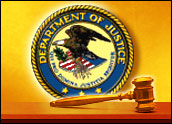
Court papers filed this week demonstrate that the U.S. Department of Justice is asking Microsoft to reveal more to rivals who license essential Windows computer code as part of the company’s ongoing antitrust settlement.
The documents in federal court show that Microsoft has agreed to a deal with the DOJ, as well as state attorneys general, to resolve worries that rivals are not getting enough “back-up documentation” when they pay for access to protocols needed to make server software work well with the Windows operating system.
But not everyone is keen on the level of cooperation Redmond is offering.
Protocol Licensing Plan
This week, Massachusetts Attorney General Thomas Reilly said in a report to Judge Colleen Kollar-Kotelly, who is overseeing the case, that the settlement’s impact on the marketplace was “essentially nonexistent.”
Attorney General John Ashcroft’s staff lawyers, however, view the settlement’s “protocol licensing plan” as key to resolving the four-year-old case, hoping it will enable other software companies to compete with Microsoft on a more equal footing.
During the 2000 election, George W. Bush was critical of the Clinton administration’s pursuit of Microsoft in several antitrust cases, going back to the early 1990s and the reign of then assistant attorney general for antitrust Anne Bingaman.
Lighter Regulatory Touch?
Bush wanted a lighter regulatory touch, and many commentators have noted that the beginning of the end of the tech bubble coincided with then-Attorney General Janet Reno’s prosecution of Microsoft in 2000. The prosecution harmed the company’s stock price, a bellwether for the tech industry, and helped drive down other technology shares listed in NASDAQ, observers noted.
The Bush DOJ lawyers, monitoring the progress of Microsoft, in a case finally settled on their watch, “have concluded that the technical documentation needs substantial revision in order to ensure that it is usable by licensees,” the court filing said, indicating that the Bush administration is seeking a balance between the company’s interests and those of consumers.
A report earlier this year by attorneys for DOJ noted that only a small number of companies had licensed the protocols. That prompted Microsoft to take steps to make the licenses cheaper.
Protocol Progress
Since the earlier report, in January, three additional companies have agreed to license the server protocols, including Microsoft competitor Sun Microsystems. Sun’s move was announced April 2nd as part of a major settlement reached between the longtime foes.
The other new licensees are Time Warner’s AOL and GeoTrust, a provider of digital certificate services.
That brings the total number of server protocol licensees to 14.
Although Microsoft is putting its legal troubles behind it here in the United States, its woes in Europe continue.
European Union “Competition Commissioner” Mario Monti this week spoke at an antitrust conference in St. Gallen, Switzerland, and said EU regulators had treated the Microsoft case with “prudence and caution” and that the remedies imposed were the “minimum necessary” to ensure competition in the computer business there.
Illegal Stifling of Competition
Last month, Monti and his cohorts ruled the Redmond, Washington-based software maker “illegally stifles competition,” and imposed a US$594 million fine on the company, ordering it to “share secret programming data” with competitors and create a version of Windows without a video or music player.
The company is appealing the case to the European Court of First Instance, claiming that the EU is essentially trying to design future Microsoft products.
The case reverberated back to the United States, where Senate Republican Leader Bill Frist has publicly complained that the EU case “preempts” the 2001 settlement with the U.S. government and violates international trade agreements.



















































